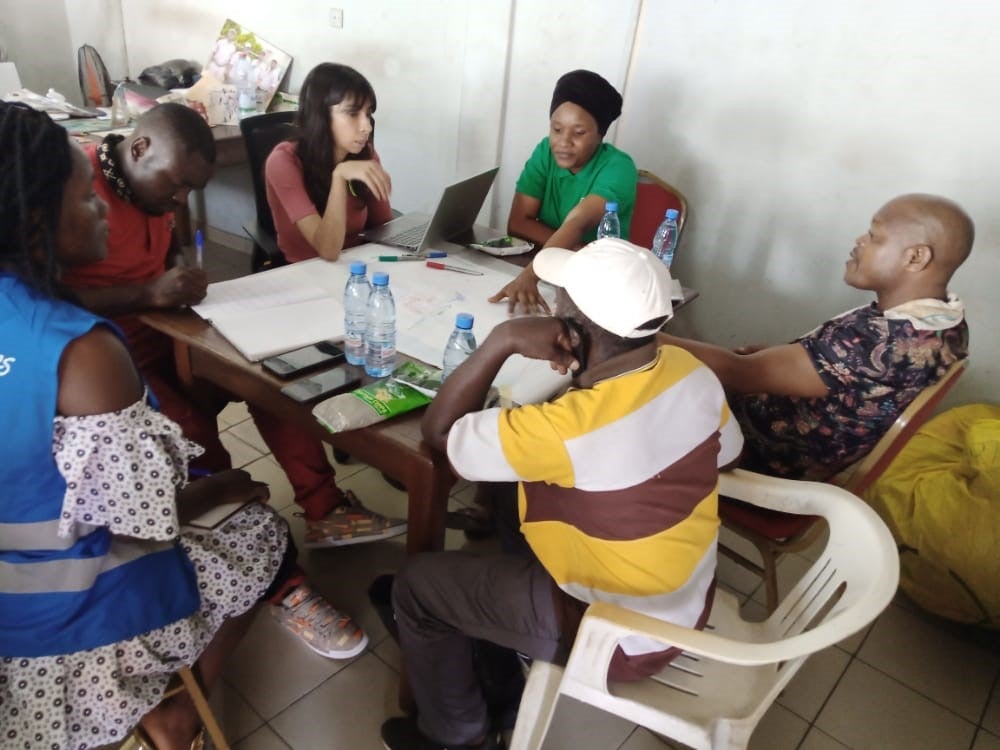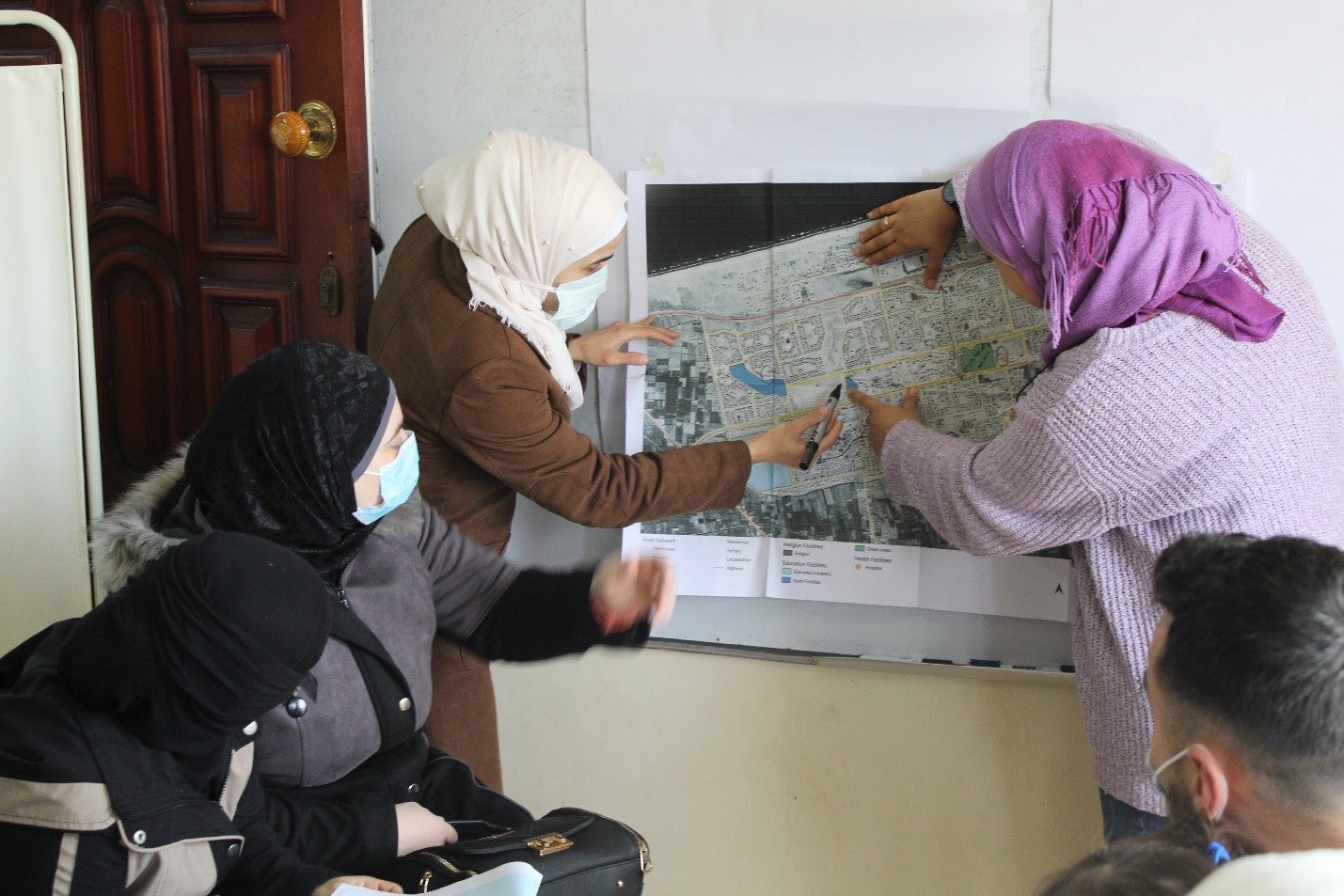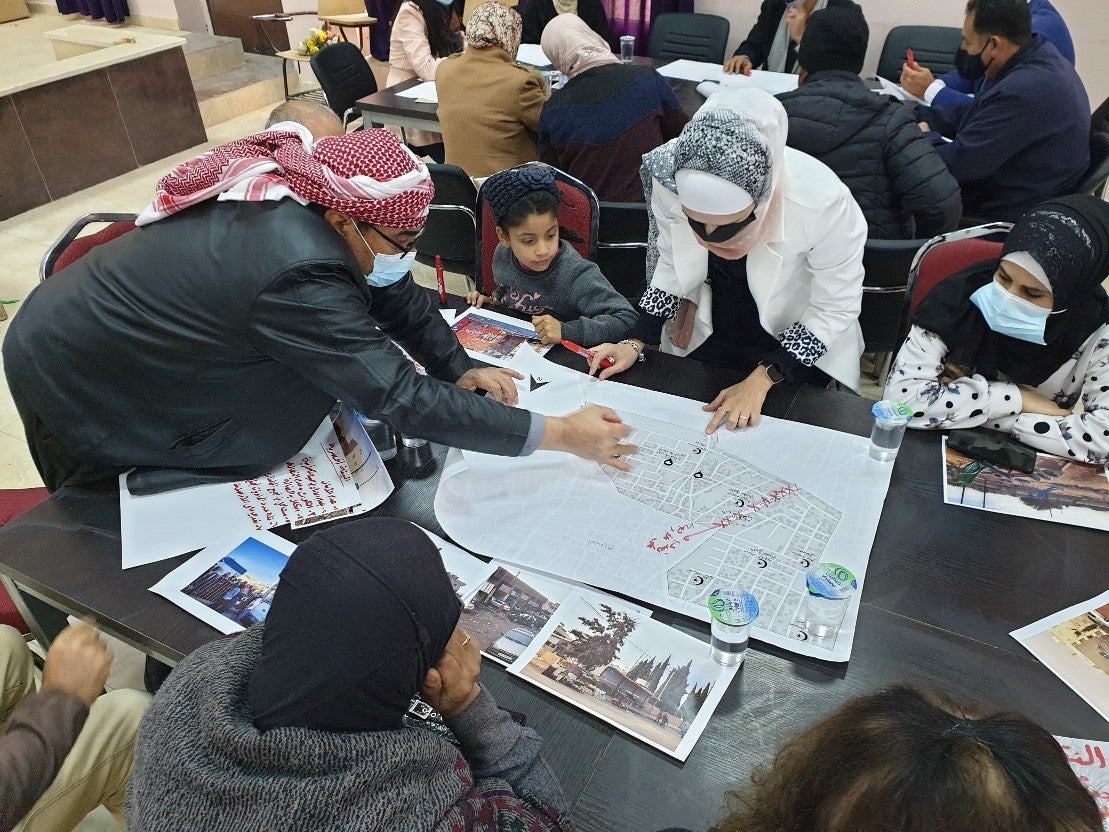Nairobi, 23 May 2022 – One of the unique skills that UN-Habitat brings to the humanitarian world is its ability to take a macro approach to the same problem in various countries, while still respecting individual particularity in each nation. That approach brings consistency, durability, and sustainability to urban development planning and implementation.
Many of the countries in which UN-Habitat works suffer from massive influx of migrants and refugees, which add to the already-shrinking infrastructure resources in host countries.
UN-Habitat’s Urban Planning and Infrastructure in Migration Contexts (UPIMC) programme is one such example which aims to improve access to reliable services and socio-economic opportunities for all, including migrants and displaced populations in urban settlements.
Funded by Swiss State Secretariat for Economic Affairs (SECO), UPIMC is implemented across three countries to support municipalities with a long-term approach that connect migration and neighbourhoods affected by displacement with improved access to public services.
The goal will be achieved through identification and design of bankable infrastructure investments. A participatory process is also leveraged to ensure that solutions developed remain sustainable in the long-term, and nurture ownership from the outset.
The programme has made steady progress, developing spatial profiles to identify and map challenges, provisions, and gaps in public infrastructure services in coordination with humanitarian interventions at the national, regional, and local levels. This article will outline the spatial planning updates achieved where the programme is implemented in Cameroon, Egypt, and Jordan.
Cameroon
Since December 2021, UN-Habitat has finalised the first part of the multi-scalar and multi-sector spatial profile in Cameroon to understand its context and identified Mambanda as a pilot neighbourhood to initiate support.
To strengthen the integration of displaced persons, UN-Habitat formed a technical committee with Douala 4’s town hall, Mayor, and Mambanda’s displaced community representatives, including women and youths. The first meeting was crucial in developing consensus among members on the methodologies of the programme and validated findings from the spatial profile. Multi-stakeholder engagements like that meeting, especially in contexts like Mambanda, are critical strategies in ensuring that the narrative will remain inclusive for both the locals and displaced.
The second component of the programme continues with ’Visioning’, which brings together stakeholders to develop a common vision for the future of Douala 4. This is complemented by an evidence-based approach, with desktop research and stakeholder engagements developing a matrix of challenges and opportunities present in Douala 4 and Mambanda district.

Egypt
As part of the first Spatial Profiling component, UN-Habitat conducted 15 focus groups discussions (FGDs) in New Damietta and Kafr El-Batikh cities, reaching out to almost 200 Syrian refugees and citizens. The groups were mobilised ensuring that they are gender-balanced and diverse in terms of age and special needs; engaging those between 12 and 70 years, and people with disabilities. The FGDs were instrumental in validating desktop research and preliminary narratives – providing insight into the context of the cities. The outcome is a prioritised list of needs and a spatialised Strength, Weakness, Opportunities, and Threats (SWOT) analysis by a diverse group of community members on housing, environment, mobility, and livelihoods.
In parallel, UN-Habitat also held several round table discussions with key technical local officials. The discussions provided governmental stakeholders an avenue to contribute to the narrative, shedding light on the gaps and needs regarding health, education, and basic service provision within these settings.
The engagements were concluded with a multi-stakeholder workshop, including refugees, local communities, and government stakeholders from both cities, to analyse the combined needs and challenges. The findings from the workshop will be an integral component of the scenario building component of the programme – providing insight into priority challenges and solutions that engages the needs of both citizens and refugees.

Jordan
Under the first Spatial Profiling component, data has been collected through a multi-stakeholder engagement process and analysed to develop a deep spatial understanding of vulnerabilities faced by cities – including access to infrastructure services and public facilities. In cooperation with Amman and Irbid cities, a scoping exercise was conducted to select three of these five identified neighbourhoods for further spatial analysis.
Geographic Information System (GIS) was leveraged to measure the demand on infrastructure networks for each of the selected neighbourhood and, in parallel, challenges and necessary interventions were also identified for each area. The spatial profile developed will provide a foundation to target interventions for key vulnerabilities. A multi-stakeholder validation workshop was held to review the spatial profiles developed and two pilot neighbourhoods -- Al Hashmi Al Janoubi Neighbourhood (Al Madinah District) and Al Afrah Neighbourhood (Sarih District-- were identified to explore detailed scenario building.
Residents from each neighbourhood were engaged to identify and map existing challenges in relation to any planned, proposed, and existing infrastructure projects. Those were categorised under the four main topics: Public Facilities, Urban Environment, Infrastructure, and Transportation, which will help inform key durable solutions necessary to provide residents a better quality of life. Additionally, the participatory process adopted will enhance the residents’ sense of belonging and ensure their support to achieve the optimal potential behind the programme.
